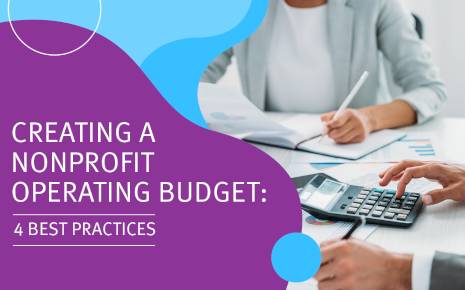By Rick Kiernan
Infrastructure serves as the backbone of economic development, playing a crucial role in facilitating the movement of goods and people, providing essential services and supporting business operations. However, inadequate or deficient infrastructure can significantly impede local economic growth and competitiveness. From transportation networks to utilities and digital infrastructure, each component plays a vital role in shaping the economic landscape of a region.
Every thriving community must plan for existing infrastructure maintenance and repair or upgrade with the latest technological advancements to deliver an economic advantage for local players. Those endeavors will only happen with proper financial planning. Convergent Nonprofit Solutions plays a vital role as a fundraising partner in supporting infrastructure initiatives and economic development efforts. By leveraging its fundraising strategy, donor engagement and campaign management expertise, Convergent helps communities and organizations secure the necessary funding for projects across numerous infrastructure segments, all critical in their manner.
Transportation
One of the primary pillars of infrastructure crucial for economic development is transportation. Efficient transportation networks, including highways, railways and ports, connect businesses to markets, suppliers and customers. Inadequate transportation infrastructure can lead to increased transportation costs, longer delivery times, and limited access to key markets, thereby hindering business growth and investment.
For example, a study by the American Society of Civil Engineers (ASCE) found that billions of dollars are lost yearly due to lost productivity and increased vehicle operating costs with deteriorating U.S. highways and bridges. According to the study, the nation’s motorists spend nearly $130 billion each year on extra vehicle repairs and operating costs. Similarly, congested ports and inefficient rail networks can limit the competitiveness of businesses, particularly those reliant on timely and cost-effective transportation of goods.
Utilities
Utilities infrastructure, including water, sewer and energy systems, is another critical component of economic development. Reliable and efficient utilities support industrial operations, commercial activities and residential communities.
Chatham County Economic Development Corporation, a Convergent client located in Pittsboro, North Carolina successfully recruited microchip manufacturer Wolfspeed in part because they worked with the City of Asheboro, in neighboring Randolph County, to ensure they could provide the 3.3 million gallons per day of water Wolfspeed expects to need.
Lack of access to modern utility infrastructure can deter businesses from locating or expanding in a region, impacting economic growth and job creation. Aging infrastructure, inadequate maintenance and underinvestment can lead to service disruptions, higher operating costs, and business retention. Moreover, concerns about water quality, sewer capacity and energy reliability can undermine confidence among investors and businesses, limiting economic opportunities.
Digital Resources
In today’s digital age, access to high-speed broadband internet is increasingly recognized as essential infrastructure for economic development. Broadband connectivity enables businesses to leverage digital technologies, access online markets and engage with customers worldwide. It also supports remote work, e-commerce and innovation-driven industries.
However, broadband access and digital infrastructure disparities can exacerbate inequalities and limit economic opportunities, particularly in rural and underserved areas. According to the Federal Communications Commission (FCC), millions of Americans lack access to high-speed internet, hindering their ability to participate in the digital economy and access educational and healthcare resources.
Addressing Infrastructure Challenges
Proactive measures and strategic investments are necessary to address infrastructure challenges and foster economic development. As a result of Raleigh, NC being one of the fastest growing metros in the country, the Greater Raleigh Chamber of Commerce has prioritized infrastructure in its new five-year plan. The Chamber plans to convene an Infrastructure Task Force to complete Wake County’s first Comprehensive Infrastructure Plan. Dedicating resources, funding, and leadership to any number of projects can be the difference between a community’s continued economic validity and a sliding backward decline.
- Investing in infrastructure upgrades and modernization projects can improve transportation networks, utility systems and digital connectivity. Prioritizing infrastructure resilience and sustainability can mitigate the impacts of climate change and natural disasters.
- Economic development leaders can collaborate with public and private sector partners to leverage infrastructure planning and implementation resources and expertise.
- Combining innovative technologies with best practices can enhance the efficiency and effectiveness of existing infrastructure systems, reducing the prohibitive costs of entirely new construction.
- Economic development leaders should proactively engage communities and stakeholders in decision-making to ensure infrastructure investments align with local needs and priorities.
How Convergent Nonprofit Solutions Can Help
Convergent Nonprofit Solutions can be a critical partner in helping economic development organizations along the path of infrastructure management. Through strategic fundraising campaigns, we mobilize financial resources from public and private sources to support infrastructure upgrades, expansion projects and technology investments. By engaging with stakeholders and donors, we can help you build momentum for infrastructure initiatives and generate broad-based support for economic development goals.
Infrastructure is a fundamental driver of economic development, encompassing transportation, utilities and digital connectivity. Addressing infrastructure challenges requires proactive investments, collaboration and innovative solutions. With its fundraising expertise, Convergent Nonprofit Solutions helps communities and organizations overcome funding barriers and achieve their infrastructure goals, paving the way for sustained economic growth and prosperity.
Visit Convergent Nonprofit Solutions today to learn more about how we can support your infrastructure and economic development initiatives.







